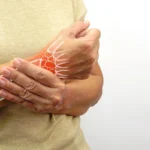
Unlocking the Mysteries of Transformation: Paul Kiritsis’ The Riddle of Alchemy
Alchemy has captivated human imagination for centuries, conjuring images of magical transformations, hidden wisdom, and the legendary philosopher’s stone. Yet, beneath these enchanting myths lies a profound tradition—both philosophical and psychological—that Paul Kiritsis brings to life in his thought-provoking book The Riddle of Alchemy. Drawing from his extensive background in clinical psychology, English literature, and the history of science, Kiritsis offers a unique interdisciplinary approach, encouraging readers to see alchemy as more than a historical curiosity—rather, as a meaningful and evolving human pursuit.
In The Riddle of Alchemy, Kiritsis journeys through the origins of alchemical thought, from ancient Egypt and Hellenistic Alexandria to medieval Europe and the Renaissance. He expertly reveals how alchemy functioned simultaneously as an early form of science and a spiritual philosophy. It was a discipline where metallurgy, cosmology, medicine, and mysticism intertwined, with physical transformation symbolizing deeper inner change. Rather than simply outlining alchemy’s historical timeline, Kiritsis deciphers its enigmatic symbols and concepts, connecting them to enduring psychological and philosophical themes.
A standout aspect of the book is Kiritsis’ insightful application of depth psychology, especially the ideas of Carl Jung. He explores Jung’s view that the alchemical process reflects individuation—the integration of conscious and unconscious aspects of the self. Kiritsis animates the striking, often surreal imagery found in alchemical texts like the Splendor Solis, portraying them not as outdated artifacts but as vibrant metaphors for humanity’s quest for wholeness. This perspective makes alchemy accessible and relevant to contemporary psychology, personal growth, and spiritual exploration.
Beyond symbolism and psychology, Kiritsis invites readers to rethink alchemy’s place in science. Without veering into pseudoscience, he thoughtfully questions the boundaries of a strictly materialist worldview and suggests that alchemical concepts might still resonate with emerging scientific ideas. This synthesis of historical detail, psychological insight, and philosophical reflection is what makes The Riddle of Alchemy a remarkable and enlightening read.
The book has earned praise as “a well-written, expertly researched analysis of the history and legacy of alchemy” (Kirkus Reviews), and it’s easy to understand why. Kiritsis writes with clarity, enthusiasm, and genuine respect for his subject. For anyone interested in the deeper mysteries of transformation—both tangible and spiritual—The Riddle of Alchemy is an essential journey.
Purchase The Riddle of Alchemy by Paul Kiritsis on Amazon here: https://www.amazon.com/Riddle-Alchemy-Paul-Kiritsis-ebook/dp/B0DM1HY2GV.
Watch the book trailer:












